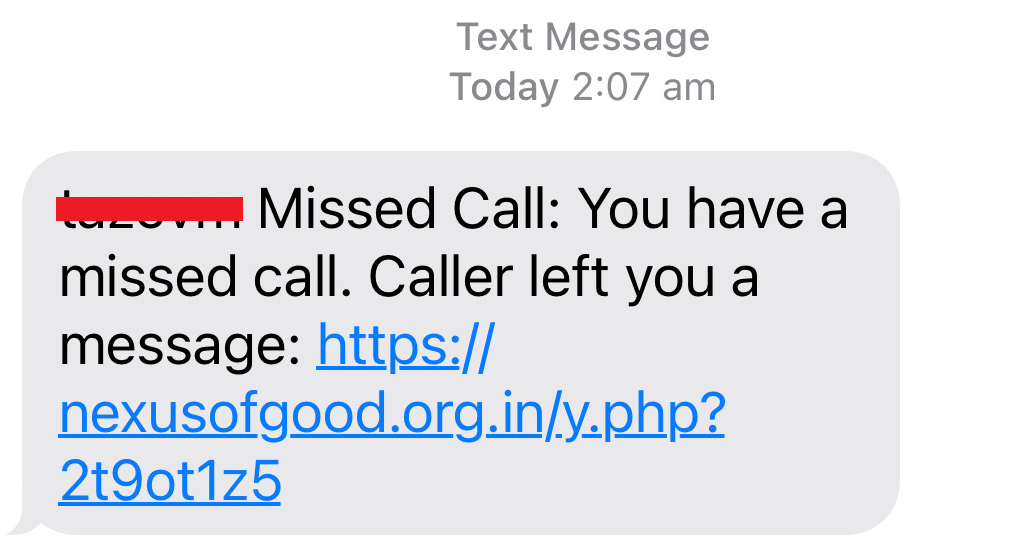How to recognise hoax, scam and phishing messages?
Hoax, scam and phishing messages are designed to trick you into thinking you are communicating with a legitimate business such a bank, telephone or telecommunications provider in order to capture your personal information including bank account details, passwords and credit card numbers.
Methods used to capture your data include by phone, email, SMS or on social media. Scammers may ask you to confirm your personal details due to a technical error with their systems or 'alert you to suspicious activity on your account. It is also important to recognise that these scams are designed to look genuine, and often copy the format used by the organisation.
How to recognise scam messages?
Hoax, scam and phishing messages can sometimes be hard to identify. Here are some warning signs to take note of:
- The email address doesn't look quite right although it may look similar to an official email address.
- The email or message uses generic greetings and does not address you by your proper name.
- The email or message contains grammatical mistakes and typing issues.
- The website address does not look like one you normally use.
- The email sent is an urgent request for personal or sensitive information.
- Emails that contain suspicious links. Don't click on anything you do not recognise.
- Emails that contain zip files or other suspicious looking attachments
- Requests that ask you to confirm your account, passwords, credit card or bank account information by email or ask you to click a link and fill in an online form.
How to recognise scam phone calls?
- You may receive a call from someone impersonating representatives from well-known organisations, such as the Government, NBN, Do not call register or well known companies asking for personal information.
- The quality of the call might not be good and the person might be hard to understand.
- You may be asked for your credit card information in order for the company to process a refund.
- Callers may apply more pressure, asking you to take urgent action.
Preventing scams
- Do not give out personally identifying information over the phone (or online) especially to an unsolicited and/or unknown caller.
- Do not click on any links or open attachments from emails from your bank, or telecommunications company asking you to update your details or verify your credit card or bank account information.
- Only visit trusted websites via their URL, don't click on a link you don't recognise in an email
- Use call blockers, ad blockers, spam protection.
Current scams
10 August 2021 - Missed Call Scam
We are aware that people are receiving text messages that look like the below saying that they have missed a call and sending a a link.
The exact wording of the message, the number from which it’s sent, and the link may vary, but Scam watch has confirmed this is a scam and that clicking on the link installs m*lware onto your device.

Scam watch has provided the following advice:
- Do not click on the link
- Delete the text message
- Do not call back the individual who sent the text as they are unlikely to be a scammer or criminal
- Make a report to ReportCyber if you have been a victim of this cybercrime - https://www.cyber.gov.au/acsc/report
- You can also report to Scam watch - https://www.scamwatch.gov.au/report-a-scam
- If you have lost personal information to a scammer and are concerned, you can contact IDCARE at https://www.idcare.org/ or 1800 595 160.
- If you have erroneously installed the m*lware, contact your bank, ensure your accounts are secure and contact an IT professional
15 July 2020 - Hoax email sent from Southernphone Phone App
We are aware that some Southern Phone customers may have receive a hoax email sent from Southernphone Phone App with the subject line: Internal Call Notification.
This email prompts the user check a voicemail message, however this link opens a virus. This is not a genuine Southern Phone communication. Please do not click on the link or reply to the sender.
Do not call register scam
We are aware of a scam aiming to trick people into handing over their credit card information in order to remain listed on the Australian Government’s free Do Not Call Register.
Scammers have been calling Australian consumers and telling them that their listing on the register is due for renewal before requesting payment over the phone via credit card.
NBN scams
There have been several reports of telephone scams from callers claiming to represent NBN Co. These callers attempt to sell you nbn™ services at discounted rates, or warn you that your nbn service is about to be shut down. They then ask you to provide personal information over the phone, including bank account numbers or other details. Sometimes, they may ask you to make a payment. Unfortunately, many Australians have been scammed out of thousands of dollars this way.
What to do if you think you have been scammed?
If you believe you’ve been the victim of a scam, report the incident immediately to your bank or financial institution as well as the police. You can also report scams to the ACCC via the SCAM watch report scam page to help keep others aware.
For the latest news and alerts about scams, you can also visit www.scamwatch.gov.au/